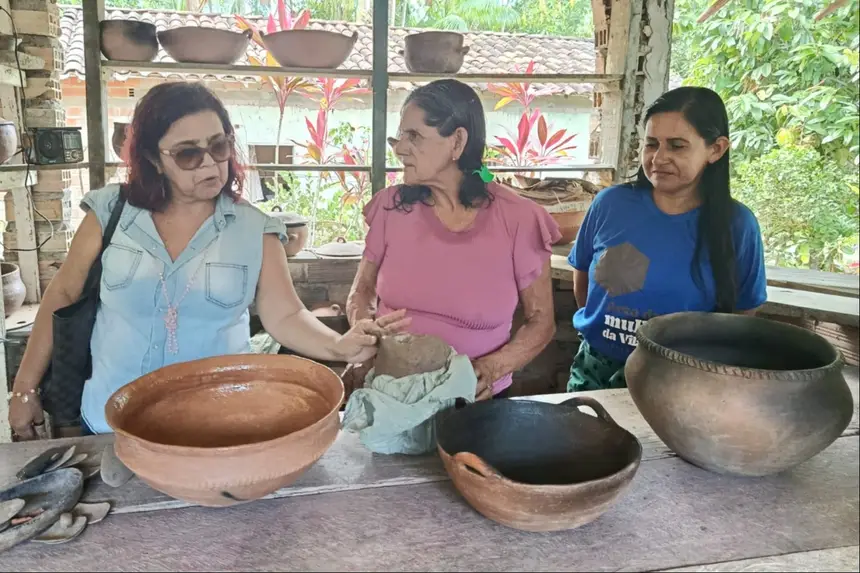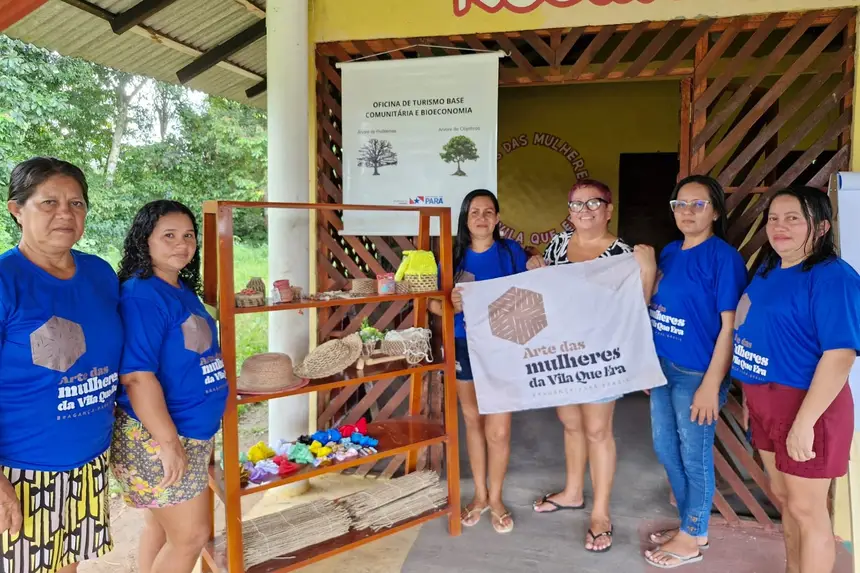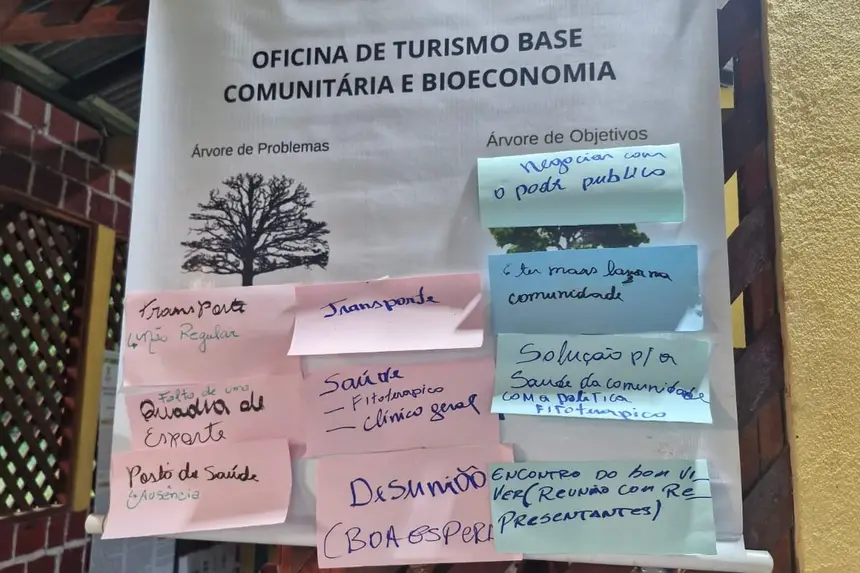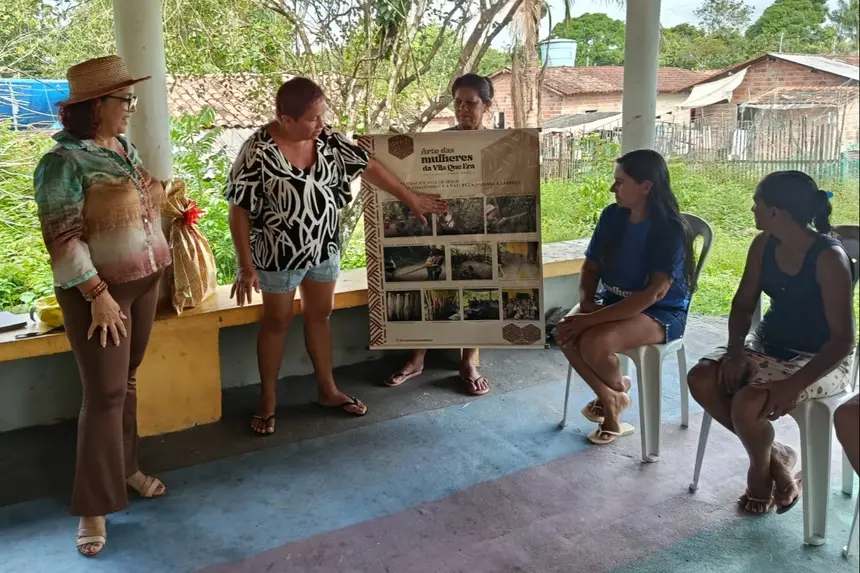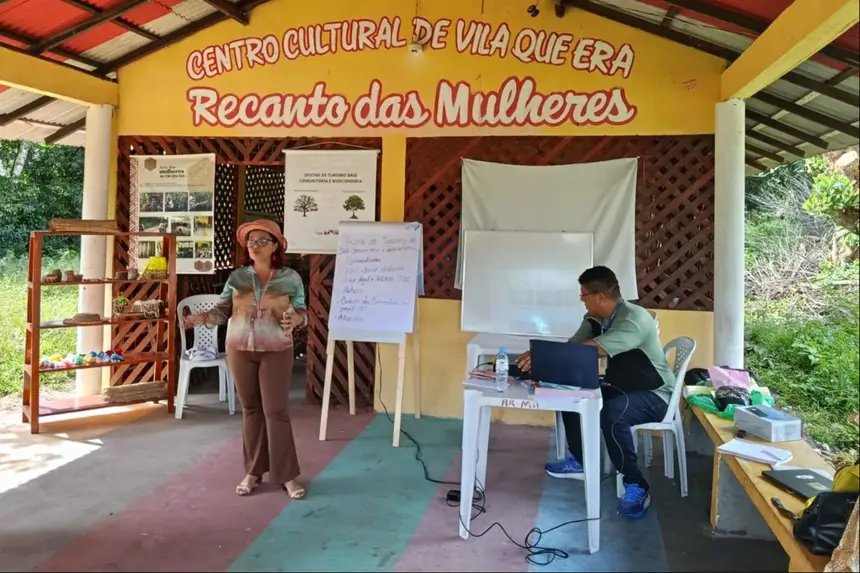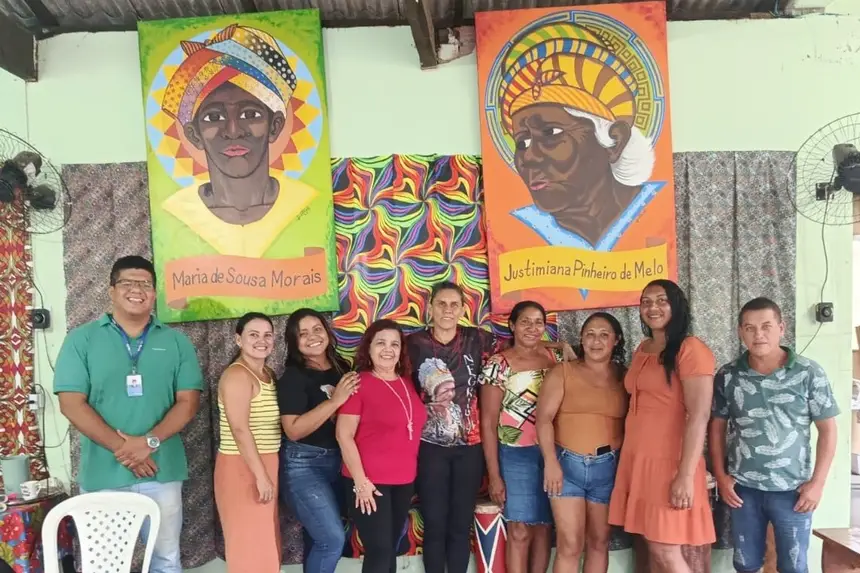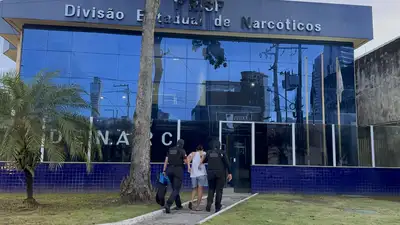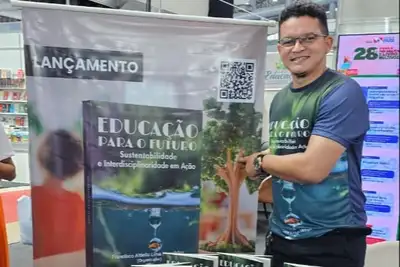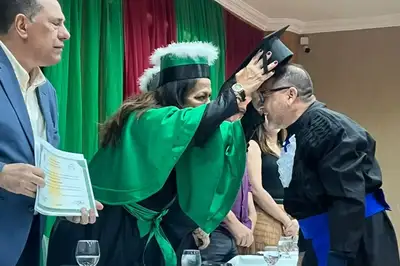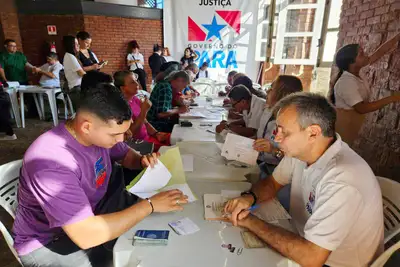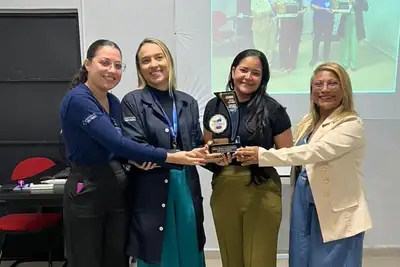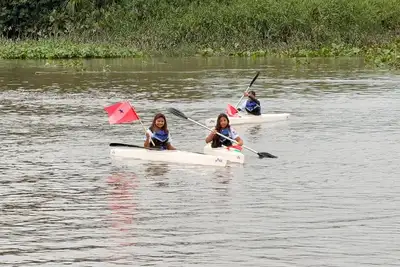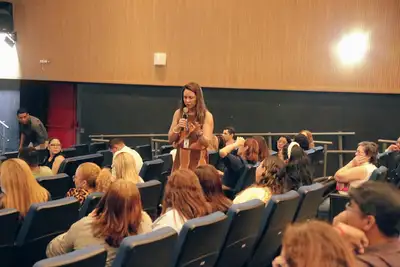Setur strengthens Community-Based Tourism in Bragança with workshops and technical visits
Community-Based Tourism (CBT) presents itself as a management strategy that prioritizes the direct involvement of host communities in tourism planning and development
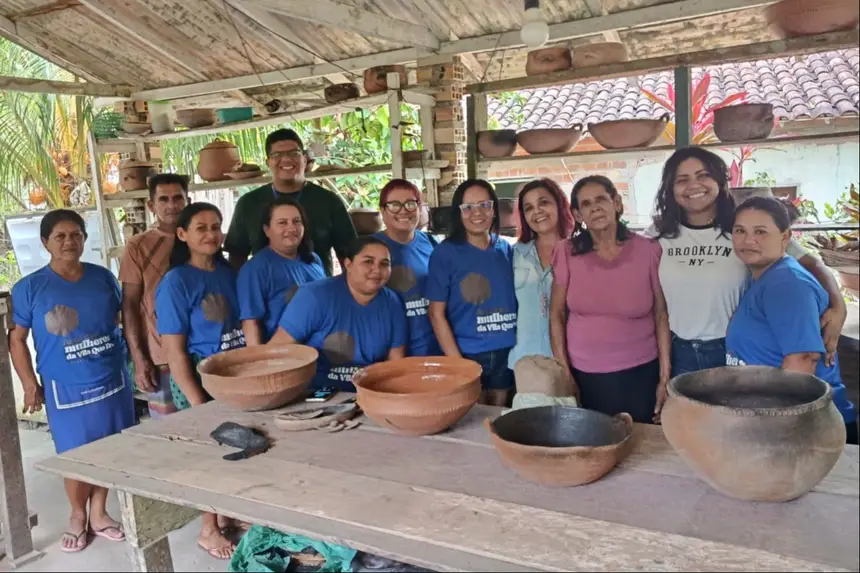
The State Secretariat for Tourism of Pará (Setur) promotes, from August 18 to 23, a series of actions aimed at strengthening Community-Based Tourism (CBT) in the municipality of Bragança, in northeastern Pará. The initiative involved workshops, research, and technical visits to traditional communities, reinforcing local leadership in the construction of tourist itineraries that value bioeconomy and regional productive chains.
The program began on Monday (18), with the research on the profile of CBT in the State and a visit to the Vila que Era community, the historical cradle of the city of Bragança, where a living itinerary was structured based on local knowledge. On Tuesday (19), Setur technicians visited the Quilombola Remnant Community of América, where potentialities for creating tourism experiences aligned with the cultural and economic traditions of the region were also identified.
On Wednesday (20), the action continued with a workshop in Vila que Era, which brought together representatives from other communities, expanding the reach of the initiative. Today, the technical team is present in Vila dos Pescadores, recognized for its strong connection to fishing activities, to map opportunities for tourism associated with local production. Concluding the program, on Friday (23), the visit will take place in the community of Camutá and in the municipal headquarters, enhancing the articulation between different territories of Bragança.
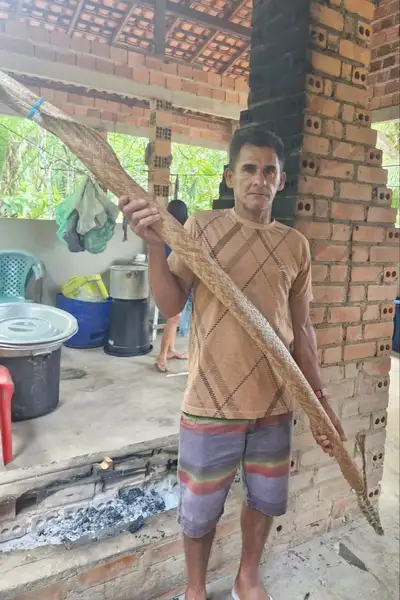
Community-Based Tourism presents itself as a management strategy that prioritizes the direct involvement of host communities in tourism planning and development. By valuing traditional knowledge, ancestral practices, and unique forms of social organization, CBT promotes inclusion, cooperation, and income generation in a sustainable manner. "In Pará, this approach has been consolidated as an alternative to the conventional tourism model, strengthening local leadership and expanding the connection between environmental conservation and socioeconomic development," explains Márcia Bastos, coordinator of Setur's CBT Program.
For the Secretary of Tourism of Pará, Eduardo Costa, the action in Bragança reinforces the importance of placing traditional communities at the center of tourism activity. “Community-Based Tourism is a fundamental tool for residents to become protagonists of local development. By preparing communities like Bragança to structure authentic and sustainable experiences, Pará is advancing in building a fairer, more inclusive tourism aligned with global sustainability challenges,” he emphasized.
From August 12 to 14, a technical visit and a sensitization workshop on Community-Based Tourism were held on the island of Cotijuba, another action of Setur's CBT Policy. The workshop took place at the headquarters of the Movement of Women from the Islands of Belém (MMIB). In addition to the sensitization, technical visits were made to the communities of Quatro Bocas, Pedra Branca, and Porção, where research on the profile of CBT was developed.
CBT - According to the National Policy, Community-Based Tourism is a form of tourism management with high potential to promote sustainable and responsible tourism, as it is organized at the local level, with community leadership, based on solidarity economy, environmental conservation, and social justice.
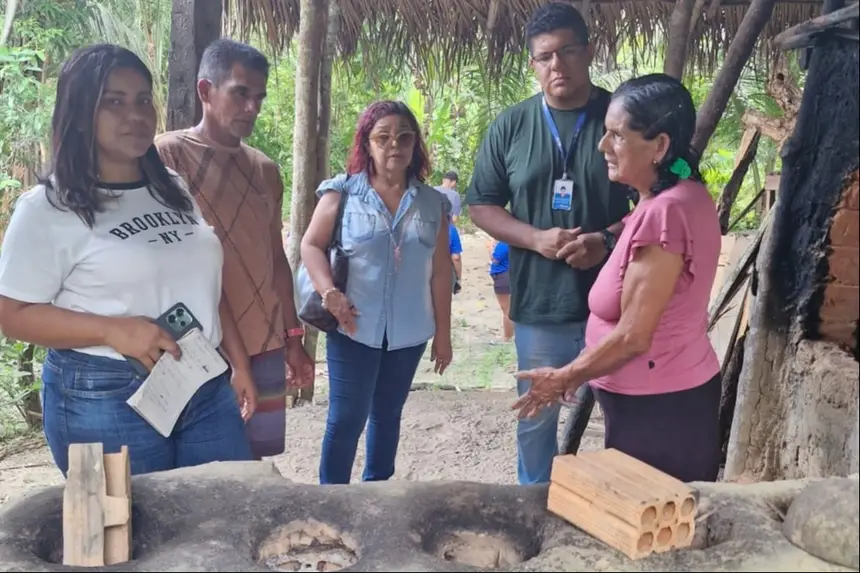
In the territory of Pará, CBT is present in traditional and riverside communities, understood as culturally differentiated groups that recognize themselves as such, which have their own forms of social organization and that occupy and use territories and natural resources as a condition for their cultural, social, religious, ancestral, and economic reproduction, based on knowledge, innovations, with knowledge and practices generated and transmitted by tradition.
The work of Setur, which meets the proposals of the State Policy on Community-Based Tourism (CBT), through law 9773/22, allows for working with sustainability and inclusion, involving the participation of communities in the management of local tourism. It is a new model of social and economic development for these territories, sustainable, based on a tourism management that promotes bioeconomy products, local productive chains, the daily lives of communities, the environment, and local culture.


